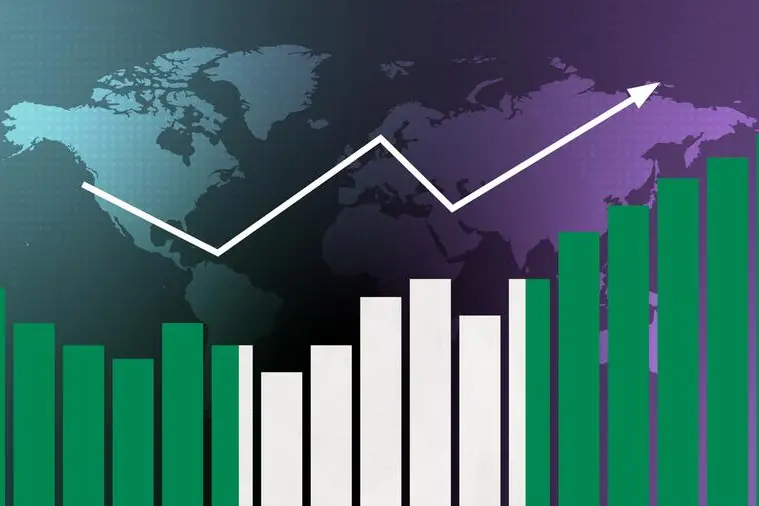PHOTO
Olayemi Cardoso, the Governor of the Central Bank of Nigeria (CBN), has once again pointed to the monetary policies of his predecessor, Godwin Emefiele, as a key factor in the country’s current economic difficulties.
At a press briefing following the 297th meeting of the Monetary Policy Committee (MPC) in Abuja, Cardoso announced a 50 basis point increase in the Monetary Policy Rate (MPR), raising it from 26.75% to 27.25% to combat the rising inflation rate, which currently stands at 32.15%.
Emefiele served as CBN governor from June 2014 until his suspension in June 2023. Cardoso was appointed as his successor in September 2023, with the Senate confirming his appointment shortly after. Since then, the MPC has raised interest rates by 8.5%, with the naira now trading at over ₦1,600 to $1, down from around ₦700 to $1 in September 2020.
When asked if the CBN’s monetary policies, including the interest rate hikes and changes to the foreign exchange system, are effective amid the economic hardships facing Nigerians, Cardoso attributed the situation to Emefiele’s tenure.
He noted that while the economy grew by an average of 1.2% during Emefiele’s time, the money supply increased by 12.6%, creating distortions in the economy.
Cardoso explained that from 2015 to 2023, the money supply ballooned from ₦19 trillion to ₦54 trillion, largely due to short-term financing methods known as “Ways and Means,” which involved the CBN lending money to the government.
He also highlighted the impact of the global oil price collapse in 2015, emphasizing Nigeria’s reliance on oil and how this has affected foreign exchange availability.
ALSO READ:Presidency reiterates commitment to tackle nutrition challenges
While acknowledging the difficulties faced by many Nigerians, Cardoso asserted that the measures being taken will help stabilize the economy in the long run. He expressed confidence that these short-term challenges will lead to a more efficient economic system and encourage investors to return to Nigeria.
He said, “You can’t divorce the situation that has taken place with what happened in the last one year,” Cardoso said while the economy on average was growing at 1.2% during Emefiele’s tenure, the money supply was growing at 12.6%. “This was an inherent distortion.”
“We came into a very loose money supply situation between 2017 and 2023 and witnessed the pumping of liquidity into the system.
“In 2015, the money supply was about N19tn, and in 2023, it was N54tn. That’s a huge increase, a very huge increase. And then a substantial amount of that was through ways and means.
“So, essentially, the printing of money resulted in a huge amount of money chasing the same amount of goods or a relative amount of goods. I think that context is very important to have.”
Known as the Ways and Means, the apex bank offered short-term financing to the Federal Government to cover its budget shortfalls.
“Let’s not forget that we had a situation where global oil prices collapsed in 2015. With that collapse, unfortunately, and it is a fact of life, Nigeria is a monolithic economy.
“So, you are dependent for everything on oil, and as a result of the collapse of oil prices, the foreign exchange began to dwindle and it is important to understand that within this period, the response to that was lesser foreign exchange and fixing of foreign exchange prices and that also harmed the economy to no end,” he added.
Cardoso also said “attempt to harmonise the multiple exchange rates has brought about results” and Nigerians “no longer have multiple windows”.
He said the exchange rate is now more flexible and people can “transact their businesses through willing buyer, willing seller, as opposed to a situation where multiple exchange rates discourage and not allow that to happen”.
“I accept the fact that many outside are finding things very difficult but I want to say that the things we are doing are set to put the economy of this country in a trajectory where we shouldn’t go back and see some of the inefficiencies we’ve seen in our system over the recent past. These, I believe are short-term pains and I believe we will get out of the situation we are in now.
“Tough though they may, and I accept that they may be tough but we have no choice but to deploy these tools to rein in the excess liquidity in the system, the high inflation and encourage portfolio investors who had taken flight to come back and take interest in Nigeria.”
Copyright © 2022 Nigerian Tribune Provided by SyndiGate Media Inc. (Syndigate.info).




















